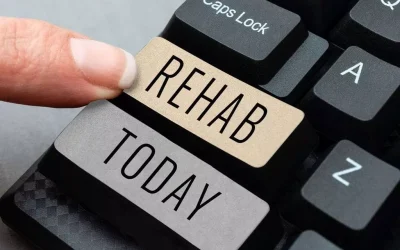Mindfulness and Meditation in Recovery
The sites I visited allowed all types of pictures in the profiles. Each time I visited those sites, I was triggered and got the hit I wanted. After a while, the pretense of looking for a date fell away; I was going there just to look at pictures. Then transition from an internal focus to an external focus, and ease your awareness back towards your current environment.
Intervention Help
In so doing, the transitory nature of craving is revealed, and one may realize that craving need not inexorably lead to substance use. Before she decides to attend the party, she could practice mindfulness to decrease stress and become aware of any craving-related thoughts, feelings, and bodily sensations. If she chooses to attend the party, she can use mindfulness to monitor and regulate her experience of craving in response to substance-related cues. However, if she notices she is feeling overwhelmed with craving, she could use mindfulness to disrupt the automatic urge to engage in substance use, and then mindfully respond by taking steps to decrease her risk (eg, leaving the party and calling a supportive friend).
Virtual mental health care visits: Making them work for you
For example, you may focus on the sound of a bell or the sight of a fire burning in the fireplace. Your mind may drift, but it is important to bring your meditation for addiction focus back to which sense you’ve chosen to perceive. Counselors may also contact schools, community groups, and policymakers to spread awareness.
Online Learning Courses
- This can help you “get out of your head” and view your experiences through a more well-rounded and empathetic lens.
- Our cutting-edge approach combines advanced therapies with traditional methods, ensuring each patient receives the tools necessary for successful, long-term sobriety.
- Recovery is also about individuals regaining a compass and learning to trust themselves enough to make changes and explore options.
- Introduced by the Buddha as a path to spiritual enlightenment more than 2,500 years ago, mindfulness is the art of being present in your own life.
- Over time, the individual may develop the motivation to reduce substance use or abstain entirely, at which point mindfulness may be useful for preventing relapse.
Personalizing meditation practices to suit individual preferences and comfort levels is key. This might involve experimenting with various meditation techniques, such as guided imagery or mindfulness, to discover the most effective approach. While the benefits of meditation in the context of addiction recovery are significant, it’s equally important to consider potential challenges. Initiating a meditation practice can seem intimidating, particularly for those who are new to it or find it difficult to focus and stay still.

Sequencing of mindfulness as a part of multimodal treatment packages
However, when examining the idea of a pathway more closely, it implies that there is a singular chosen “path” or “road” that one will follow and adhere to. Historically, the expectation for recovery has been on choosing a particular therapeutic https://ecosoberhouse.com/ or self-help path and committing to it. They help address the roots of addiction, provide necessary skills, and build healthy relationships. All in all, addiction counselors can be an essential aspect of addiction recovery.
13 Health Benefits of Meditation – Health.com
13 Health Benefits of Meditation.
Posted: Mon, 24 Apr 2023 07:00:00 GMT [source]
Yet, the emerging global emphasis on integrative health supports a holistic approach toward wellness by providing treatment for psychiatric and SUDs in community-based medical settings. MBIs, in brief and extended formats, may be uniquely suited to this therapeutic context, and in time, may become mainstays of addiction treatment. MBIs might also reduce addictive behavior by strengthening facets of dispositional/trait mindfulness. In a RCT of MBRP among a heterogenous sample of individuals with various substance use disorders, increases in dispositional mindfulness facets like acceptance, awareness, and nonjudgment significantly mediated the effect of MBRP on decreasing craving following treatment [39]. Similarly, in a large cluster RCT of MORE versus CBT or TAU, increases in dispositional mindfulness significantly mediated the effect of MORE on reducing craving following treatment [40].
- More than a decade of research has demonstrated the promise of MBIs for intervening in SUDs and preventing relapse.
- The information we provide is not intended to be a substitute for professional medical advice, diagnosis or treatment.
- The most prominent MBIs (i.e., MBRP, MORE, mindfulness training for smokers) for addiction were modeled after the first generation of mindfulness-based therapies like MBSR and MBCT in terms of their structure and format.
- Randomized controlled trials suggest that MBIs are a promising treatment for substance misuse and exert their effects via increases in levels of mindfulness across a wide array of substance-misusing behaviors and clinical populations.



